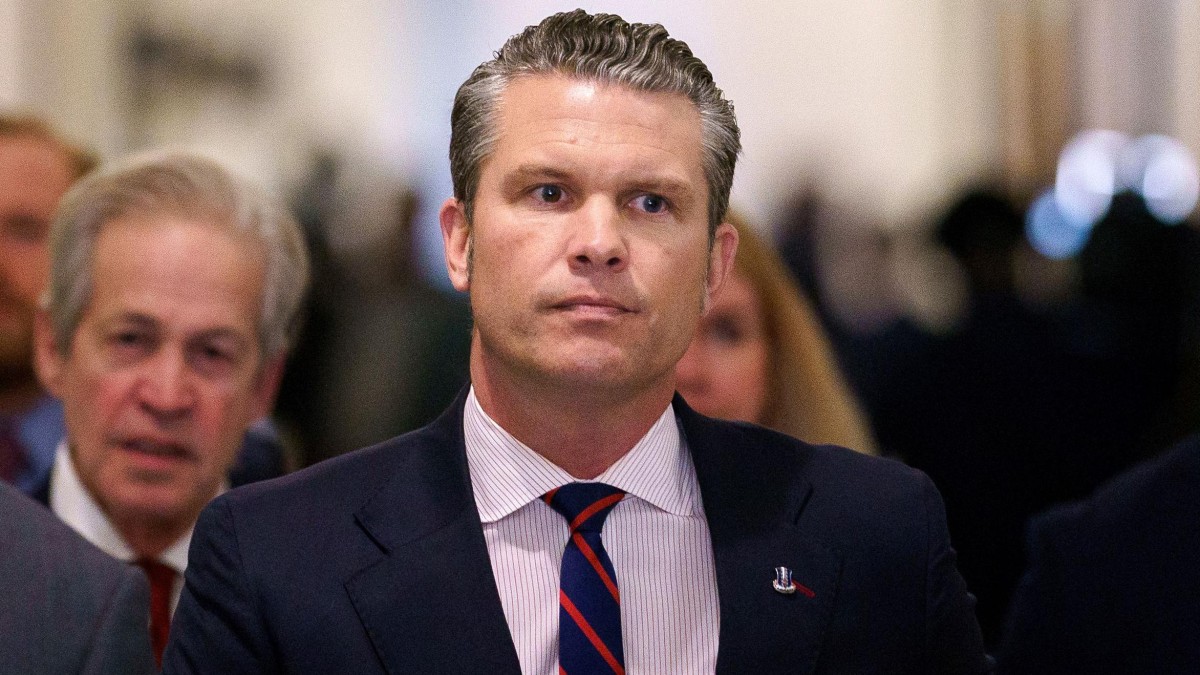Feb. 17—As the fur continues to fly regarding last week’s Trump-Putin phone call, the statements by U.S. Defense Secretary Pete Hegseth, and, most notably, the speech given by Vice-President J.D. Vance in Munich—the Feb. 14 lead headline of the online version of Foreign Policy read “Vance Leaves Europe Gobsmacked”—the exchange between Russian Foreign Minister Sergey Lavrov and Secretary of State Marc Rubio has gone somewhat under-reported. “On February 15, at the initiative of the American side, Foreign Minister Sergey Lavrov had a telephone conversation with U.S. Secretary of State Marco Rubio,” Russia’s read-out begins. It then states the following: “Building on the February 12 telephone conversation between the Presidents of Russia and the United States, the two foreign ministers agreed to maintain an open channel of communication to address longstanding issues in Russian-American relations. Their goal is to remove unilateral barriers inherited from the previous U.S. administration that have hindered mutually beneficial trade, economic and investment cooperation.”
Does this indicate a possible new direction by the Trump Administration pertaining to the sanctions policy against Russia, characterized in February of 2022 by then-French Finance Minister Bruno de la Maire as “financial nuclear war”? “We want to target the heart of the Russian system, we target Vladimir Putin, we target the oligarchs, but we also target the entire Russian economy,” he said at the time. Is that crazy, inept policy, a policy still being advocated by Ursula von der Leyen and other Russophobes, about to be changed by the United States?
There is much more to the Russia read-out, but this passage has caught the attention of analysts, intrigued by its implications. Whether such a change is about to occur, or not, a new security and development architecture, if fought for by what Dr. Naledi Pandor, former South African Minister of International Relations and Cooperation, called “the adults in the room” at meeting #89 of the International Peace Coalition this past Friday, Feb. 15, is both uniquely possible, needed and increasingly wanted by most of the world’s nations.
One analyst, the Duran podcast's Alexander Mercouris, has suggested that things may be heading in that direction. “So the Europeans, who are already fuming and angry, and very upset about all that is happening, must now prepare themselves for moves by the Americans and the Russians to normalize relations completely; to restore what the Russians call a respectful and constructive dialogue for Putin and Trump to move towards a summit meeting, and for the Americans to lift sanctions on Russia entirely, to return to normal commercial and trading relations, whereby American businesses and companies return to Russia to do business there.” Overly optimistic, perhaps, but thinkable, were “the adults in the room” to prevail.
Dr. Pandor suggested that the Schiller Institute help in this task. “So, we need adults. We need leaders. I haven’t, as yet, been able to identify who are the leaders. So, I believe that the Schiller Institute, along with other organizations of similar strength, could begin to assume that leadership role, primarily for purposes of convening, of initiating conversation, and developing an agenda.”
Not only adults, but wise men and women, organized into a Council of Reason, are what the world needs at this moment. And they need not all be living to play as important a role now as they once did. Former President Dwight Eisenhower, it should be remembered, proposed that three desalinations plants, one in Israel, one in Jordan, and one in Egypt, could jointly reproduce the freshwater volume of the Jordan River. He saw this as a way, immediately after the June 1967 Arab-Israeli War, to supersede all the tired political solutions that had come before. He said, “The purpose of building large atomic desalting stations in the troubled region, is not only to bring large arid regions into production and supply useful work for hundreds of thousands of people, but also, hopefully, to promote peace in a deeply troubled area of the world through a new cooperative venture among nations. I am optimistic enough to believe that the proposal, when implemented—as it is sure to be someday—may very well succeed in bringing stability to a region where endless political negotiations have failed….”
Speaking to a reporter outside the meeting of the Munich Security Conference, HRH Saudi Prince Turki Al-Faisal, the former chief of Saudi intelligence, asked about the Trump Plan for Gaza, said: “Well, I wish Americans would also keep in mind that before October 7, [2023] and since October 7, the people who died the most were the Palestinians, (through) American weapons. So, if there is going to be a quid pro quo—Americans died, and Palestinians died, and so on—we’re never going to end the situation, and reach a final solution. I think we should look forward to the future. Now, October 7 is behind us. Now we have to go forward. Mr. Trump’s plan is not selling anywhere. So the alternative is, either go back to the Arab Peace Initiative, or they can think of doing Gaza along (the lines of) the Marshall Plan in Europe, after the Second World War. America rebuilt a whole continent, let alone this small strip of Gaza, while the people stayed in place. They didn’t move the Europeans out of Europe in order to do that. So they can do it very well in Gaza.”
Prince Turki, and many others, need to go beyond the over-used, though largely accurate reference, which many make, to a “Marshall Plan.” Economist, statesman and “wise man” Lyndon LaRouche supplied what the prince, the president and the world needs, in his Oasis Plan. This was worked out in great detail—including for Saudi Arabia itself. Here is a passage from his “Saudi Arabia in the Year 2023,.” written more than 40 years before that date.
“There are principally three technological means required for this general program of increasing absolutely, qualitatively, the freshwater throughput of the arid regions (of Southwest Asia). First, abundant, cheap energy supplies, to an extent, and with a quality not available, except with reliance upon nuclear and related technologies. Second, development under the heading of qualitative advancements in relativistic physics, to make the necessary development and economic application of nuclear technologies efficient. Third, the use of large-scale development of plant growth to create the climatological basis for new weather systems, through which much of the freshwater supply to each part of the entire region is reacquired as rainfall in the same and adjoining regions.
“This conquest of the desert will be a long process of development. In the small, the transformation of semi-habitable into habitable regions will center around new cities established in the center of large, irrigated areas of agricultural development, like the program being conducted in Egypt and Sudan. The yellow sands of the desert will be transformed into brown, and then fertile black soil by use of modern irrigation and other agronomical methods. At the same time, the possibility of continuing to establish such successful Arab colonies in the desert will depend upon large-scale engineering programs of water management, including extensive desalination, and other large scale infrastructural measures. So, the Arab world as a whole will progress, benefiting year by year in the present, and proceeding toward the great general transformation which will be the long-term result of such directed shorter-term progress.”
LaRouche wrote that proposal 42 years ago, in 1983, for this moment.
The wise words of LaRouche, and of such wise women and men, both living and immortal, can guide our rapid shift away from the abyss of thermonuclear Hell, to the reasonably safe shore of Purgatory. There, in repentance of humanity’s mad adolescence, in which “nuclear war makes sense,” we can reject our madness and form that Council of Reason whose job it must be to pull as many adults into the room as possible—and this is the moment to do that.




